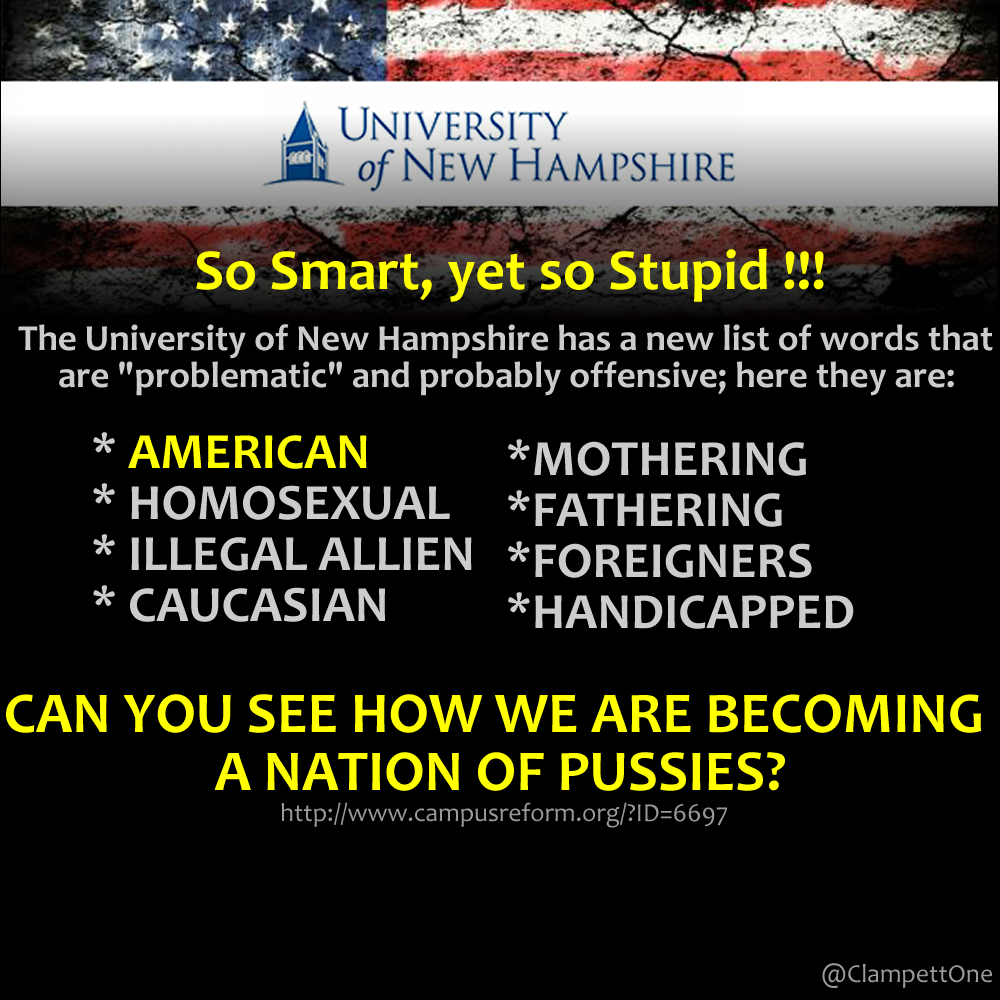According to the University of New Hampshire bias-free language guide, the word ‘American’ is considered offensive. Why is American considered offensive? According to the University of New Hampshire bias-free language guide says American offensive because “the U.S. is the only country in North and South America.” Also considered ‘offensive’ by the loons at the University of New Hampshire and their bias-free language guide is ‘mothering and fathering.’
| University of New Hampshire bias-free guide says ‘American’ is offensive |
|---|

|
“American,” “illegal alien,” “foreigners,” “mothering,” and “fathering” are just a handful of words deemed “problematic” by the University of New Hampshire’s Bias-Free Language Guide.
According to the university’s website, the guide “is meant to invite inclusive excellence in [the] campus community.”
Terms also considered problematic include: “elders,” “senior citizen,” “overweight,” “speech impediment,” “dumb,” “sexual preference,” “manpower,” “freshmen,” “mailman,” and “chairman,” in addition to many others.
The guide defines words such as “homosexual” as “problematic,” offering “Same Gender Loving” as a more inclusive substitute. Similarly, a lack of gender-neutral bathrooms is, according to the university, “ciscentrism.”
The university defines “ciscentrism” as “[a] pervasive and institutionalized system that places transgender people in the ‘other’ category and treats their needs and identities as less important than those of cisgender people.”
“Ciscentrism,” according to the university, “includes the lack of gender-neutral restrooms, locker rooms, and residences.”
Saying “American” to reference Americans is also problematic. The guide encourages the use of the more inclusive substitutes “U.S. citizen” or “Resident of the U.S.”
The guide notes that “American” is problematic because it “assumes the U.S. is the only country inside [the continents of North and South America].” (The guide doesn’t address whether or not the terms “Canadians” and “Mexicans” should be abandoned in favor of “Residents of Canada” and “Residents of Mexico,” respectively.)